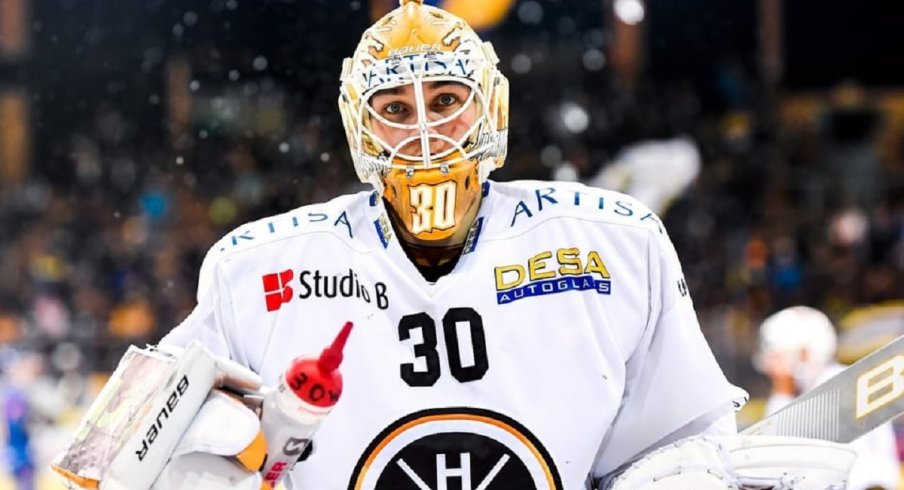On Wednesday, the Blue Jackets officially signed top goalie prospect Elvis Merzlikins to a one-year contract.
At this point, reality is starting to set in that Sergei Bobrovsky will be moving on to another team, opening the door for a new starter in the Blue Jackets' crease for the first time since 2011-12. Big decisions are forthcoming. Will management really be content to enter a new era with a battery of Merzlikins, a highly-regarded prospect but still a player who's never so much as played a professional hockey game in North America, and Joonas Korpisalo, a restricted free agent (RFA) who has played below expectations for the past three seasons?
Note: quick primer on RFAs: As players advance in their careers, they acquire more rights. When a player is tenured enough to become an unrestricted free agent (UFA), he is free (on July 1) to sign with whichever team he pleases. But an RFA comes with a bit more nuance. The short version is: when a player becomes an RFA, the team that holds his rights can offer him a contract to remain a part of his current team. Contract negotiations can become contentious as the team has serious leverage over the player. In fact, the only way a different team can procure another team's RFA is by submitting an offer sheet, effectively going behind the current team's back in hopes of stealing that player. But acquiring a player via the offer sheet is accompanied with a steep penalty, so it happens less than you'd think (more on offer sheets here).
I think no, and wouldn't be surprised if Korpisalo is traded for a draft pick(s) (remember those?) in the coming months. That would open the door for a veteran, a pending UFA like Keith Kinkaid, Petr Mrazek, or Robin Lehner, to help Merzlikins learn the ropes of the NHL. But in any case, Merzlikins appears to be the Blue Jackets' goalie of the future, and has for some time now.
Which then begs the question: why would Merzlikins – and why would the Blue Jackets – agree on a one-year contract?
Believe it or not, this contract, paying $874,125, makes sense for all parties.
From Merzlikins' standpoint, he enters his first year in the NHL with minimal leverage as an RFA who's never played an NHL game. At the same time, he wants to show the Blue Jackets that he's a capable goalie that deserves to be paid. Therefore, he wanted to sign the shortest contract possible, which will (in theory) get him a more lucrative contract sooner rather than later. Simply, the player is betting on himself. Ryan Murray signed a similar "prove it" RFA deal last summer, though the jury is still out on how the dust will settle on that gamble.
At the same time, Blue Jackets management would be happy to oblige to a more costly contract, should it be warranted. It's an inexpensive contract, and even though it's a one-way contract (meaning he'll get paid the same salary in the NHL or AHL), he won't require waivers to be sent down to the AHL as he has not accrued a full year since signing his entry-level contract (March 20, 2019). Management certainly doesn't intend to send him to the minors, but if they have to, it won't be costly financially.
The 25-year-old will also be an RFA after this contract ends, meaning that the Blue Jackets and Merzlikins should be able to come to a more long-term solution after this season, should they desire. He'll become a UFA at age 27, free to sign where he pleases.
By signing him for just one season, the Blue Jackets will still have control over Merzlikins next summer, and the player will have a year of experience under his belt in which he can demand higher compensation. Both sides win.
